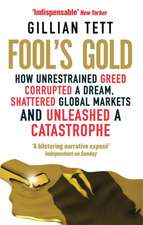The Death of Class
Autor Jan Pakulski, Malcolm Watersen Limba Engleză Paperback – 17 dec 1995
Preț: 463.18 lei
Preț vechi: 544.91 lei
-15% Nou
Puncte Express: 695
Preț estimativ în valută:
88.63€ • 92.77$ • 73.77£
88.63€ • 92.77$ • 73.77£
Carte tipărită la comandă
Livrare economică 31 martie-14 aprilie
Preluare comenzi: 021 569.72.76
Specificații
ISBN-13: 9780803978393
ISBN-10: 0803978391
Pagini: 192
Ilustrații: 1, black & white illustrations
Dimensiuni: 156 x 234 x 12 mm
Greutate: 0.35 kg
Ediția:1
Editura: SAGE Publications
Colecția Sage Publications Ltd
Locul publicării:London, United Kingdom
ISBN-10: 0803978391
Pagini: 192
Ilustrații: 1, black & white illustrations
Dimensiuni: 156 x 234 x 12 mm
Greutate: 0.35 kg
Ediția:1
Editura: SAGE Publications
Colecția Sage Publications Ltd
Locul publicării:London, United Kingdom
Recenzii
`A well-organized book, written in an engaging style... certain to stimulate vociferous responses in an area where turgidity has become commonplace' - Political Studies
Cuprins
Introduction
The Sociologist's Chimera
The Shifting Sands of Structure
Fickle Formations
Subsiding Economic Foundations
Crumbling Communities of Fate
Cultural Revolutions
Choice Politics
Life After Class
The Sociologist's Chimera
The Shifting Sands of Structure
Fickle Formations
Subsiding Economic Foundations
Crumbling Communities of Fate
Cultural Revolutions
Choice Politics
Life After Class
Descriere
Traditionally class has been the key concept for understanding society, enabling analysts to interpret social conflict and predict the course of social development. Critics argue that it is too crude and incapable of handling the nuances of the new identity politics. Jan Pakulski and Malcolm Waters take the radical position within the current debates that class is a purely historical phenomenon.
This stimulating book argues that concentration on class actually diverts attention from other more central and more morally problematic inequalities. The class perspective has become a political straitjacket which obstructs an accurate understanding of contemporary social, cultural and political processes.













